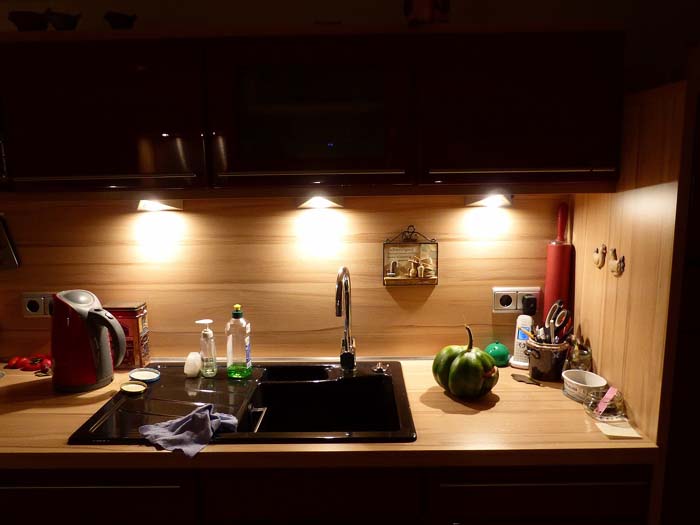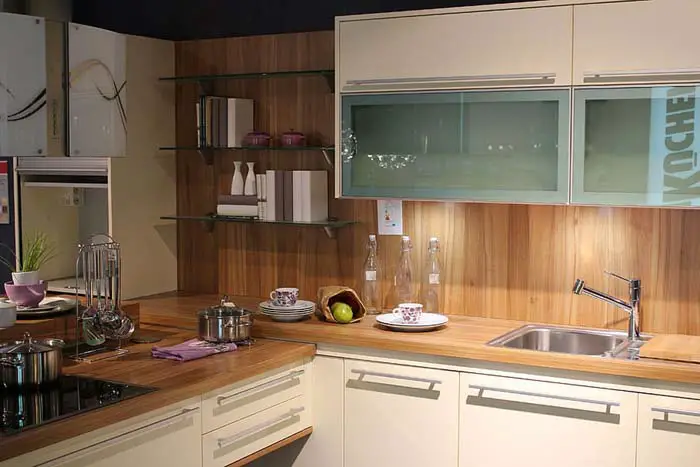A fatal electric shock in the kitchen is a real possibility. It’s essential to take safety measures to avoid electric accidents. This is particularly true in an environment where electricity and water are present. Thankfully, you can prevent an electric accident in the kitchen in number of different ways.
You may prevent electric accidents by following a few basic safety rules, such as using caution when handling plugs and wires and keeping appliances dry. By keeping these things in mind, you can keep your kitchen where you and your loved ones feel comfortable cooking and chatting. You should be familiar with the possible risks. Then, protect yourself and the people around you, whether you’re an experienced cook or a novice.
What kinds of faults can lead to electricity accidents in your kitchen?
Old wiring
Another major source of electrical accidents is old wiring. It’s possible that your home’s wiring is too old to support the load of the electrical appliances safely. This will result in the wires overheating, increasing the risk of catching fire.
Call an electrician to update your home’s wiring if it is old. Remember that upgrading your electrical system is not something you should try to tackle on your own. Only a trained professional should attempt this.

Damaged electrical cords
Damaged electrical wires are another major source of electricity accidents. A gap might appear in the insulation if the cords are broken or frayed. If you put your hand in this gap, you’ll feel the jolt of electricity as it flows through you.
If an electrical cord is damaged, you should replace or repair it immediately to prevent a fire or shock. You should hire an electrician if the cords have any damage.
Faulty home appliances
Appliances that are not functioning properly are another typical source of electric accidents. In the event that a piece of kitchen equipment is not functioning as it should, it may put users in jeopardy. Because of this, it is essential to have a qualified technician do routine maintenance on all of your kitchen appliances.
Faulty wiring
Faulty wiring is a leading cause of electric accidents. These wires present a significant threat if they get exposed. Electric accidents are possible if electricity leaks from faulty wiring. Because of this, it is important to routinely inspect your home’s electrical outlets and appliances for signs of frayed or damaged wire. You should hire an electrician if there is any suspicion of faulty wiring on the property.
Ungrounded plumbing
An electrical shock can be due to improperly grounded plumbing. Ungrounded plumbing can induce an electrical short and shock if a dangling wire from an appliance makes contact with it. Because of this, it’s important to have a professional examine your plumbing regularly.
If you feel tingling when touching kitchen fixtures, like the faucets, the fault may lie in your ungrounded plumbing.
How to Prevent Electric Accidents in the Kitchen
Don’t use wet hands to handle electrical plugs and wires
Although this advice may appear simple, it is frequently disregarded. There is an increased risk of electric accidents when you use wet hands to handle electrical plugs or cords. This is due to the fact that electricity may be conducted through running water, making it potentially dangerous to touch.
Ensure your hands are dry before touching any cords or plugs to avoid electric shocks. Use gloves or other protective gear to keep your hands dry if you must handle them while wet.
Repair the faulty wires immediately
A damaged or frayed electric cord should be replaced or repaired immediately. Before using any damaged or dropped appliance again, not just those with frayed cables, you should have it inspected by a professional. The appliance may have hidden problems that make it dangerous to use, even if the damage doesn’t look too bad.
Ensure cables are not too close to a heat source
When you’re cooking or washing dishes, counter space may vanish quickly. Using a mixer or blender near a hot burner might cause damage to the appliance and its power cords. Heat damage or melting of power cords can cause electrocution or electrical fire if the appliance is plugged in. In order to maintain the integrity of their insulation, look for a cool, dry place to power wires. Ensure you have adequate space behind the refrigerator or freezer to allow airflow. When there’s insufficient space, the heat generated by these appliances could potentially melt the wires powering them.
Use extension cords carefully
Another source of electrical accidents is the careless use of extension cords. Because of their fragility, you should not use extension cables as a permanent solution. Rather, their sole purpose is to provide a temporary one. If you absolutely must use one, check the manufacturer’s specifications to be sure it can handle the wattage of your appliance.
Knowing how to use extension cords correctly is important, as their misuse can result in fires. When using an extension cord, make sure only to connect it to a free outlet. Avoid running extension wires under the carpets or between doors.
Safely unplug appliances
Disconnect all appliances the right way when you’re done using them. You should never pull on the cord to unplug it, as this could break the cord or, even worse, the circuits within. The plug must be pulled out of the outlet by grasping it and pulling.
A lot of people also need to be made aware that any time they disconnect a piece of technology, they should always make sure to power it down first. When you turn off an appliance while it is still powered on, you risk triggering a power surge. This power surge has the potential to cause catastrophic harm to the equipment as well as an accident.
To avoid this, switch off all electrical kitchen appliances before you unplug them. You can securely unplug them from the wall after turning them off.
After unplugging an appliance, put it away properly. You should store appliances and their cords in a dry, well-ventilated area.
Inspect the electrical system regularly
Having your home’s electrical system checked on a regular basis is one of the best ways to protect your family against electrical accidents. This process includes checking the switches, extension cords, and power outlets. Signs of damage or wear should prompt action, such as replacement or repair.
Having a licensed electrician perform a check once every few years is another smart move. They will be able to spot issues that you are overlooking.
Keep water and grease away from electrical outlets
This is yet another typical error that can result in an electric shock. It’s common to get water and grease on your hands while cooking. If you touch an outlet, the current can enter your body through the water.
The same applies to spills. You should wipe and dry an electric outlet right away if you spill something on it. Always use caution in the kitchen to avoid accidents like these. Be sure to clean your hands thoroughly after handling any water or grease and before touching any electrical outlets.
Never place an electrical item near a sink or other water source. A hazardous situation can arise if an appliance is submerged or splashed with water. Unplug any electronics that have come into contact with water immediately.
Power-hungry electronics need a dedicated outlet.
Using a separate outlet for high-power appliances like dishwashers and refrigerators is best. Each appliance needs its own electrical outlet, and you should use only one outlet for one device.
One way to prevent overloading an outlet and leaking electrical current from one appliance to another is to use dedicated outlets for appliances. This is essential because if one appliance develops an issue, it won’t spread to the others if connected to different outlets. This can help lower the potential for electric fire and shock.
Cover any exposed electrical outlets
If kids are present, you should protect your home’s electrical outlets with safety covers. Protecting your home from electrical hazards is simple and inexpensive with outlet covers. They’re worth investing in because they can prevent electric accidents. They can also help keep dust and other debris from getting into the outlets.
Conclusion
In the kitchen, these are only some of the most prevalent sources of electrical accidents. You can greatly reduce the risk of electric accidents in the kitchen by paying attention to these many aspects, following safety advice, and taking preventive measures.

